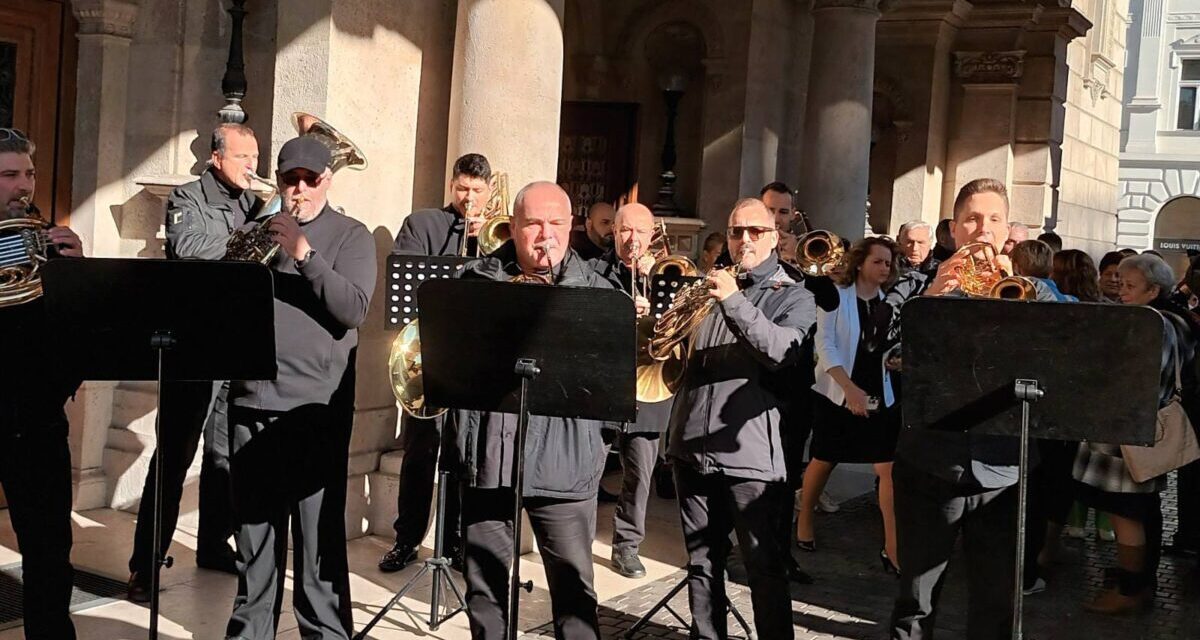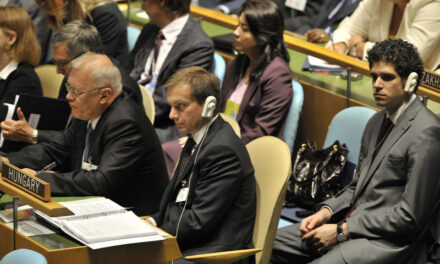Being Hungarian is a matter of the heart.
The Hungarian State Opera House - as one of the most important institutions of national culture - has a tradition for more than a decade of hosting citizen oath takers from the territory of the former historical Hungary for one of the first performances of the season, and in recent years several of the Opera House's artists have also performed on these solemn occasions, the they pledged their faith to their chosen country in a patina building that also houses their profession.
Traditionally, the statue of Ferenc Erkel, located on the left side of the main entrance, is wreathed before the swearing-in, thus paying tribute to the first general director of the Opera House, the composer of the National Anthem and the two most famous national operas, László Hunyadi and Bánk Bán.
The creator of Hungarian classical music was an unsurpassed master of his time - István Kónya, deputy mayor of Gyula, Ferenc Erkel's hometown, began his celebratory speech. - Ferenc Erkel occupies a special place in the history of the city. On the one hand, this is also due to the fact that the former parents' house, the former school, and the exhibition place are the guardians of the Erkel relics. What's more, in the Gyulai Várfürdő area, the first full-length statue of rural Hungary can be found in the shade of an old oak tree, where the master is sitting on a bench, holding a glass of wine in his left hand and the Bánk bán score in his right, looking thoughtfully into the future. On the other hand, the citizens of our city have been commemorating the life and work of the great music poet year after year, and are also promoting his works at events beyond our city.
Thirdly, let's not forget that as many Hungarians live on the globe, and as many Hungarian hearts beat in the world, they all hum or sing aloud the melody of Ferenc Erkel's music on all our national holidays, whether that person lives in America, Australia or any Scandinavian country.
This is what makes Ferenc Erkel and his life's work truly national - the deputy mayor summed up his thoughts, and then the National Anthem was sung twice, first at the entrance of the building, and then inside, before the swearing-in.
In addition to István Kónya, Szilveszter Ókovács, the general director of the Opera, as well as the head of the national Oaths Office, ministerial commissioner Emese Balogh-Madár, took part in the wreath-laying, in whose presence the naturalized people took the oath of citizenship.
Being Hungarian is a matter of the heart - stated the general director, highlighting how great a pleasure it is for him that the artists of the Opera can take their oath in the Ybl palace.
At the end of the ceremony, Alexandru Agache, who has been a private singer of the Opera for more than three decades, but who has visited the most famous opera houses in Europe from London to Vienna, gave a short but heartfelt speech.
This is a great gift. Now I can say that I have come home - said the Cluj-Napoca-born opera singer with Hungarian ancestry on her mother's side, struggling with tears.
Cover image: The Hungarian State Opera has a tradition of more than a decade to host citizen oath takers from the territory of the former historical Hungary for one of the first performances of the season
Source: Facebook/István Kónya













